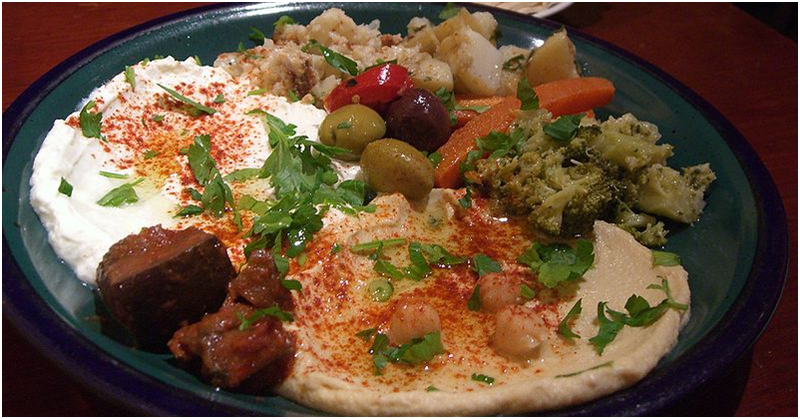When out shopping at your local grocery store, you may notice that there are certain food products which bear special labels on them. If you look closer you will see a symbol which says ‘halal-certified’ in some of them. While halal is a Muslim term, this special kind of food preference has branched outside of the Middle East, as Muslims (practicing or otherwise) can be found all over the world.
ALSO READ: 5 Things to Consider when Travelling to the Middle East during Ramadan
It is important to understand the local customs and Islamic traditions especially if this is your first time to visit the Gulf region. Halal doesn’t only describe non-pork items, but also include how the type of meat (whether fish, chicken, or beef) is cooked.

Things to Know about Halal Food in the Middle East
In this post, we will provide details on what ‘halal’ is all about.
Islamic dietary food laws identify foods that are halal, which means lawful or permitted. On this note, the foods and drinks which Muslims avoid are called haram.
If you’re planning to visit the Middle East, it pays to know what food and drinks are considered halal and those that are haram.
Here are some of the basic things to note about the Islamic dietary food law:
- Muslims only consume halal meat.
Now if you’re asking, “how does meat become halal?” We must first refer to the source of this law which is the Q’uran. According to the Islamic Shari’ah, to make meat halal or permissible, the animal or poultry must be slaughtered observing a ritual known as Zibah or Zabibah. To make it easier to understand, halal is somewhat equivalent to Jewish kosher, and Zibah is, with a few exceptions, almost the same as Shechita.
- For halal purposes, it must be clear that:
- An animal should not have died prior to slaughter
- A Muslim should perform the slaughter
- Any flowing blood of the carcass must be completely drained out of the body.
- Choice of modern or newer method of food preparation has to be considered with caution, to ensure that the process abides to Islamic principles.
- Pork is forbidden under Islamic laws, therefore:
- Halal slaughtering must not be done in the same place where pigs are slaughtered, or within the same area.
- As per animal welfare consideration, certain edits and rules have to be followed such as:
- The animal has to be fed as usual and given water prior to slaughter;
- Other animals must not see one of their kind being slaughtered;
- The knife should be four times the size of the neck and razor sharp;
- As much as possible, the slaughterer as well as the animal should face the Qibla or Mecca; and
- The animal must not be suffering from any disease or injuries.
It’s quite interesting to find out why certain values and traditions are particularly important to a culture and group of people. Knowing this aspect of your travel adds value and meaning to your trip wherever it may be in the world.
